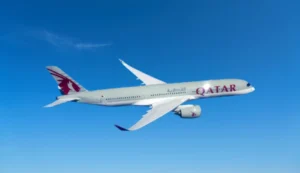Dhaka Airport’s Third Terminal Nears Completion, Flights Expected Early 2025
Dhaka Airport’s third terminal is set for completion by October, with flights expected to commence in early 2025, enhancing the airport’s capacity by an additional 12 million passengers annually.

Photo Source: Dhaka Tribune
The construction of the third terminal at Hazrat Shahjalal International Airport in Dhaka is set to be completed by October this year, with flight operations anticipated to commence in early 2025. According to the Civil Aviation Authority of Bangladesh (CAAB), the terminal’s construction is in its final phase, with around 98% of the work already done.
CAAB will officially take over the terminal from the contractor in October, following which preparations for flight scheduling will begin. Despite initial concerns about potential delays following the change in government earlier this month, the project has regained momentum under the interim administration.
The new terminal, which boasts a striking design, will significantly boost the airport’s capacity, allowing it to handle an additional 12 million passengers annually. This expansion comes at a critical time, as the current terminals are already managing between 120 to 130 flights daily, serving approximately 8 million passengers per year.
Air Vice Marshal Md Monjur Kabir Bhuiyan, CAAB chairman, recently inspected the terminal’s progress, expressing satisfaction with the work and urging the team to meet the October deadline. Once completed, the terminal will offer state-of-the-art facilities, including 115 check-in counters, 66 departure and 59 arrival immigration desks, and 12 boarding bridges.
Consultancy firm Nippon Koei has projected that around 6,000 skilled workers will be required to operate and maintain the terminal, including nearly 4,000 for security alone. While recruitment may take some time, CAAB and Biman Bangladesh Airlines will initially manage operations, with full functionality expected by February 2025.
The project, launched in 2017, is being executed by Japan’s Mitsubishi and Fujita, along with South Korea’s Samsung, at an estimated cost of Tk21,398 crore, with significant financial backing from the Japan International Cooperation Agency (JICA).






